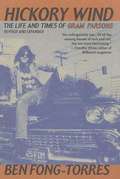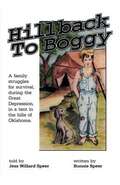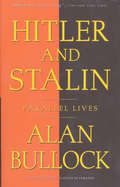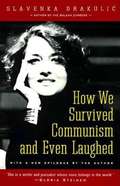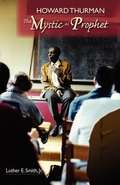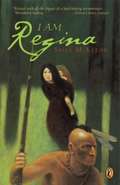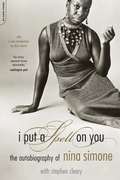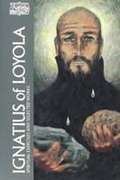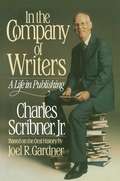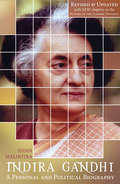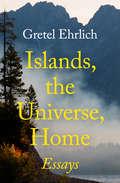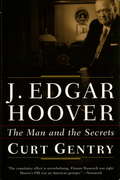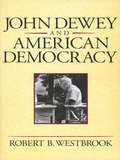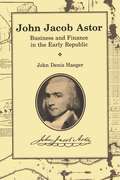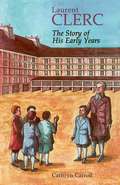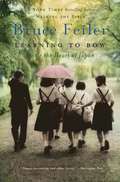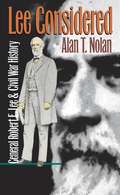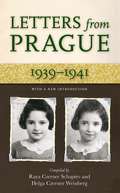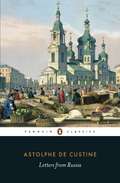- Table View
- List View
Hickory Wind: The Life and Times of Gram Parsons
by Ben Fong-TorresFrom Publishers Weekly This entertaining biography examines the eventful life of singer/guitarist Gram Parsons, who collaborated with the Byrds on the album Sweetheart of the Rodeo , founded the Flying Burrito Brothers with Chris Hillman and worked with country singer Emmylou Harris. Although Parsons achieved only minimal stardom prior to his 1973 drug-related death at age 26, his fusion of country and rock influenced such bands as the Eagles and the Grateful Dead. Fong-Torres ( The Motown Album ) describes the free-spirited, flamboyant musician's privileged but troubled Southern background and interviews individuals including the Byrds' Roger McGuinn, the Rolling Stones' Keith Richards and loyal road manager Phil Kaufman, who, according to Parsons's wishes, attempted--unsuccessfully--to cremate Parsons's body in Joshua Tree National Monument, a park in California. Fong-Torres drops music-biz names and reports on the colorful 1960s and '70s fast lane with finesse; Parsons's profound, continuing impact is felt in admiring testimonies from friends and fans.
Hillback to Boggy
by Bonnie S. Speer Jess W. SpeerJess and Bonnie Speer have spun one of the best tales concerning Oklahoma history since The Grapes of Wrath. The reader will laugh some and cry some with these memorable characters. Hillback to Boggy is a story of one of Oklahoma's most trying times, the Depression years, and of a family that struggled for survival in a tent in the hill country of Hughes County. Papa tried to live by the Bible, but when he did people took advantage of him. "You can make peace with the birds and animals, but you can't with people, he said "Some of them are just a natural-born son-of-a-bitch."
Hitler and Stalin: Parallel Lives
by Alan BullockForty years after his Hitler: A Study in Tyranny set a standard for scholarship of the Nazi era, Lord Alan Bullock gives readers a breathtakingly accomplished dual biography that places Adolf Hitler's origins, personality, career, and legacy alongside those of Joseph Stalin--his implacable antagonist and moral mirror image.
How We Survived Communism & Even Laughed
by Slavenka Drakulic"I clearly remember when it all began. Just before he retired, a journalist colleague returned from the Austria-Hungary border in mid-September 1989, crying with excitement. 'East Germans are crossing the border by the thousand. I didn't think I would ever live to see this!' Neither did I. That is how you are trained...to fear change, so that when change eventually begins to take place, you are suspicious, afraid...because every change...was always for the worse." excerpt from Introduction.
Howard Thurman :The Mystic as Prophet
by Luther E. SmithSmith delivers the best introduction to the spirituality of Howard Thurman that led to his prophetic voice.
I Am Regina
by Sally M. KeehnThe cabin door crashes open-and in a few minutes Regina's life changes forever. Allegheny Indians murder her father and brother, burn their Pennsylvania home to the ground, and take Regina captive. Only her mother, who is away from home, is safe. Torn from her family, Regina longs for the past, but she must begin a new life. She becomes Tskinnak, who learns to catch fish, dance the Indian dance, and speak the Indian tongue. As the years go by, her new people become her family . . . but she never stops wondering about her mother. Will they ever meet again?"A first-person narrative based on the true story of a young woman held by Indians from 1755-1763, related with all the impact of a hard-hitting documentary . . .Wonderful reading." (School Library Journal)"I Am Regina is an enthralling and profoundly stirring story, historical fiction for young people at its very finest." (Elizabeth George Speare, Newbery Award-winning author of The Witch of Blackbird Pond)
I Put A Spell On You: The Autobiography Of Nina Simone
by Stephen Cleary Nina SimoneA gorgeous, inimitable singer and songwriter, Nina Simone (1933-2003) changed the face of both music and race relations in America. She struck a chord with bluesy jazz ballads like "Put a Little Sugar in My Bowl" and powerful protest songs such as "Mississippi Goddam" and "To Be Young, Gifted, and Black," the anthem of the American Civil Rights movement. Coinciding with the re-release of her famous Philips Recordings, here are the reflections of the "High Priestess of Soul" on her own life.
Ignatius of Loyola: The Spiritual Exercises and Selected Works
by George E. GanssThis volume includes Ignatius' (1491-1556) complete Autobiography, complete Spiritual Exercises, selections from the Constitution of the Society of Jesus and some of Ignatius' nearly 7,000 letters.
In the Company of Writers: A Life in Publishing
by Charles ScribnerScribner's lively and informal memoir of a life spent among writers. He provides an intimate view of a family -- and a family business -- devoted to books and to the characters who produced them: Scott Fitzgerald, Thomas Wolfe, Edmund Wilson, P. D. James, Marjorie Kinnan Rawlings, James Jones, and Ernest Hemingway. In that era, business was based on close, sometimes stormy, ties between publisher and author.
Indira Gandhi: A Personal and Political Biography
by Inder MalhotraA definitive, incisive and no-holds-barred account of the life and times of one of India’s most charismatic and prominent leaders who has left a distinctive stamp on history For almost two decades, Indira Gandhi stood out the world’s most powerful woman. In India, there is hardly a neutral opinion about her. She is either adored or abused. Inder Malhotra’s biography explores objectively this highly complex and very private person – right from her childhood to her last days – who lived under constant public gaze and learnt to adjust her demanour to the occasion, rigorously concealing her true self and real feelings. This comprehensive work recounts her unusual and unhappy ‘love marriage’ to Feroze Gandhi and examines the ambivalent influence of her father, Jawaharlal Nehru, on her career. It also focuses on her relationship with her sons: Sanjay, her chosen heir, and his elder brother Rajiv, who, ironically, succeeded her as the prime minister of India. The author traces Indira Gandhi’s own evolution from a ‘dumb doll’ to the ‘empress of India’ and her downfall, the seeds of which were sown when she imposed the Emergency on 25 June 1975. This phase marked a dark period in the post-independence era. Her party (the Congress) lost the March 1997 general election and she was out of power for nearly three years. The author also describes the later revival in her fortunes, when she returned as prime minister in January 1980. During her second term, she had to order the Indian Army to enter the Golden Temple in Amritsar (the holiest shrine of the Sikhs) to flush out the militants hiding there. This move led to her being assassinated by her own Sikh bodyguards on 31 October 1984. In the revised and updated edition, Inder Malhotra throws light on the impact that Indira Gandhi had (and continues to have) on Indian politics after her death when her mantle fell on members of her family, including Rajiv Gandhi first and Sonia Gandhi later. This is not only a compulsive and gripping narrative about a remarkable personality but also a fascinating study of India after independence.E41
Islands, the Universe, Home: Essays
by Gretel EhrlichTen essays on nature, ritual, and philosophy &“that are so point-blank vital you nearly need to put the book down to settle yourself&” (San Francisco Chronicle). Gretel Ehrlich&’s world is one of solitude and wonder, pain and beauty, and these elements give life to her stunning prose. Ever since her acclaimed debut, The Solace of Open Spaces, she has illuminated the particular qualities of nature and the self with graceful precision. In Islands, the Universe, Home, Ehrlich expands her explorations, traveling to the remote reaches of the earth and deep into her soul. She tells of a voyage of discovery in northern Japan, where she finds her &“bridge to heaven.&” She captures a &“light moving down a mountain slope.&” She sees a ruined city in the face of a fire-scarred mountain. Above all, she recalls what a painter once told her about art when she was twelve years old, as she sat for her portrait: &“You have to mix death into everything. Then you have to mix life into that.&” In this unforgettable collection, Ehrlich mixes life and death, real and sacred, to offer a stunning vision of our world that is both achingly familiar and miraculously strange. According to National Book Award–winning author Andrea Barrett, these essays are &“as spare and beautiful as the landscape from which they&’ve grown. . . . Each one is a pilgrimage into the secrets of the heart.&”
J. Edgar Hoover: The Man and the Secrets
by Curt Gentry"The cumulative effect is overwhelming. Eleanor Roosevelt was right: Hoover's FBI was an American gestapo."--Newsweek Shocking, grim, frightening, Curt Gentry's masterful portrait of America's top policeman is a unique political biography. From more than 300 interviews and over 100,000 pages of previously classified documents, Gentry reveals exactly how a paranoid director created the fraudulent myth of an invincible, incorruptible FBI. For almost fifty years, Hoover held virtually unchecked public power, manipulating every president from Franklin D. Roosevelt to Richard Nixon. He kept extensive blackmail files and used illegal wiretaps and hidden microphones to destroy anyone who opposed him. The book reveals how Hoover helped create McCarthyism, blackmailed the Kennedy brothers, and influenced the Supreme Court; how he retarded the civil rights movement and forged connections with mobsters; and what part he played in the investigations of President John F. Kennedy and Martin Luther King Jr.
Jack Benny: The Radio and Television Work
by The Editors at the Museum of Television and RadioDetailed descriptions of over 150 radio and TV programs, a section on his historic 'radio feud' with Fred Allen, reprints of scripts, and critical analyses of his work by the curators of the museum.
Jennifer Capriati
by Mikki MorrissetteDescribes the fifteen-year-old tennis player, who has rocketed up the world tennis rankings in only two years of professional playing.
Jim Abbott
by John RolfeA biography of the one-handed pitcher of the California Angels baseball team.
John Dewey and American Democracy
by Robert B. WestbrookOver a career spanning American history from the 1880s to the 1950s, John Dewey sought not only to forge a persuasive argument for his conviction that "democracy is freedom" but also to realize his democratic ideals through political activism. Widely considered modern America's most important philosopher, Dewey made his views known both through his writings and through such controversial episodes as his leadership of educational reform at the turn of the century; his support of American intervention in World War I and his leading role in the Outlawry of War movement after the war; and his participation in both radical and anti-communist politics in the 1930s and 40s. Robert B. Westbrook reconstructs the evolution of Dewey's thought and practice in this masterful intellectual biography, combining readings of his major works with an engaging account of key chapters in his activism. Westbrook pays particular attention to the impact upon Dewey of conversations and debates with contemporaries from William James and Reinhold Niebuhr to Jane Addams and Leon Trotsky. Countering prevailing interpretations of Dewey's contribution to the ideology of American liberalism, he discovers a more unorthodox Dewey--a deviant within the liberal community who was steadily radicalized by his profound faith in participatory democracy. Anyone concerned with the nature of democracy and the future of liberalism in America--including educators, moral and social philosophers, social scientists, political theorists, and intellectual and cultural historians--will find John Dewey and American Democracy indispensable reading.
John Jacob Astor: Business and Finance in the Early Republic (Great Lakes Books Series)
by John Denis HaegerJohn Jacob Astor was the best-known and most important American businessman for more than a half-century. His career encompassed the country's formative economic years from the precarious days following the American Revolution to the emergence of an urban-centered manufacturing economy in the late 1840s. Change was the dominant motif of the period, and Astor either exemplified the varied economic, social, and political changes in his business career or he directly affected the course of events. In this biography of John Jacob Astor, John Denis Haeger uses Astor's life and his career as a merchant, fur trader, and land speculator as vehicles for examining several important themes and issues in American economic and urban development between 1790 and 1860. Haeger addresses, in fascinating detail, the complexity of Astor's business endeavors, his extensive connections with the country's dominant political figures, and the "modern" business strategies and managerial techniques that he used to build his business empire. Astor was clearly not a business revolutionary who radically altered an existing system. He was, however, an entrepreneur who exerted a profound change on an industry. He fascinated his contemporaries precisely because he so mirrored his age and its changing business and economic patterns. He grasped the greater size and complexity of an emerging commercial economy in post-Revolutionary America and adopted strategies and structures that transformed the fur and China trades. His investment in city real estate, stocks, bonds, and even a western city made him part of America's evolution into an urbanindustrial society. For his era, John Astor's career was remarkable for its modernity, vision, and reflection of American economic and political values. More than just a personal biography, John Jacob Astor combines economic theories with a fascinating narrative that demonstrates, like no other book has, Astor's impact on the early republic.
Josh and Satch: The Life and Times of Josh Gibson and Satchel Paige (Baseball and American Society #6)
by John HolwayHere for the first time is a book devoted exclusively to two of the all-time greats--home run king Josh Gibson and pitching ace Satchel Paige. Holway tells each man's story in a season-by-season account of their careers and places their accomplishments in context with history. Includes ten pages of Negro League statistics.
Kissinger and Brzezinski: The NSC and the Struggle for Control of US National Security
by Gerry Argyris AndrianopoulosThe factors which influenced foreign policy under Nixon and Carter.
Laurent Clerc: The Story of His Early Years
by Cathryn CarrollLaurent Clerc won lasting renown as the deaf teacher who helped Thomas Hopkins Gallaudet establish schools to educate deaf Americans in the 19th century. Now, his character as a young boy growing up in Paris has been captured in the novel Laurent Clerc. In his own voice, Clerc vividly relates the experiences that led to his later progressive teaching methods. Especially influential was his long stay at the Royal National Institute for the Deaf in Paris, where he encountered sharply distinct personalities -- the saintly, inspiring deaf teacher Massieu, the vicious Dr. Itard and his heartless "experiments" on deaf boys, and the "Father of the Deaf," Abbe Sicard, who could hardly sign. Young adult readers will find his story richly entertaining as well as informative.
Learning to Bow
by Bruce FeilerLearning to Bow has been heralded as one of the funniest, liveliest, and most insightful books ever written about the clash of cultures between America and Japan. With warmth and candor, Bruce Feiler recounts the year he spent as a teacher in a small rural town. Beginning with a ritual outdoor bath and culminating in an all-night trek to the top of Mt. Fuji, Feiler teaches his students about American culture, while they teach him everything from how to properly address an envelope to how to date a Japanese girl.
Learning to Bow
by Bruce FeilerLearning to Bow has been heralded as one of the funniest, liveliest, and most insightful books ever written about the clash of cultures between America and Japan. With warmth and candor, Bruce Feiler recounts the year he spent as a teacher in a small rural town. Beginning with a ritual outdoor bath and culminating in an all-night trek to the top of Mt. Fuji, Feiler teaches his students about American culture, while they teach him everything from how to properly address an envelope to how to date a Japanese girl.
Lee Considered
by Alan T. NolanOf all the heroes produced by the Civil War, Robert E. Lee is the most revered and perhaps the most misunderstood. Lee is widely portrayed as an ardent antisecessionist who left the United States Army only because he would not draw his sword against his native Virginia, a Southern aristocrat who opposed slavery, and a brilliant military leader whose exploits sustained the Confederate cause. Alan Nolan explodes these and other assumptions about Lee and the war through a rigorous reexamination of familiar and long-available historical sources, including Lee's personal and official correspondence and the large body of writings about Lee. Looking at this evidence in a critical way, Nolan concludes that there is little truth to the dogmas traditionally set forth about Lee and the war.
Letters from Prague: 1939–1941
by Helga Weinberg Raya C SchapiroCorrespondence documenting a Jewish family&’s personal history of the Holocaust and World War II. Raya Schapiro and Helga Weinberg found a box of letters among their mother&’s effects after her death in 1990. They were written by their grandmother and uncle, trapped in Prague after the Nazi occupation, to the girls&’ parents who had escaped to the United States in May, 1939, leaving behind Raya and Helga, who were five and seven years old at the time. The seventy-seven letters reprinted here span a period of two years, during which the Nazis drew an ever-tightening noose of destruction around the Jews of Prague: each letter is followed by notes of explanation and amplification, as well as notes on Nazi laws and official restrictions and the progress of the war. Each letter has a censor&’s stamp on it; each envelope bears the still-frightening emblem of the Third Reich. The letters dramatically convey the tension, growing daily, of existence under the Nazis, and their tone becomes increasingly desperate as every avenue of escape reaches a dead end. Praise forLetters from Prague: 1939–1941&“This book turns an abstraction into a palpable terror and pity.&” —Chicago Tribune&“A compelling and personal insight into the horrors of the Holocaust.&” —Booklist&“As it turned out, the girls escaped only after months of bureaucratic wrangling, while the grandmother and uncle never obtained permission to leave and were deported to the gas chambers at Treblinka and Auschwitz two years later. Collected here is the moving correspondence between the adults in Prague and the girls&’ parents in the U.S.&” —Publishers Weekly
Letters from Russia
by Marquis de CustineThe Marquis de Custine's unique perspective on a vast, fascinating country in the grip of oppressive tyrannyIn 1839, encouraged by his friend Balzac, Custine set out to explore Russia. His impressions turned into what is perhaps the greatest and most influential of all books about Russia under the Tsars. Rich in anecdotes as much about the court of Tsar Nicholas as the streets of St Petersburg, Custine is as brilliant writing about the Kremlin as he is about the great northern landscapes. An immediate bestseller on publication, Custine's book is also a central book for any discussion of 19th century history, as - like de Tocqueville's Democracy in America - it dramatizes far broader questions about the nature of government and society.
